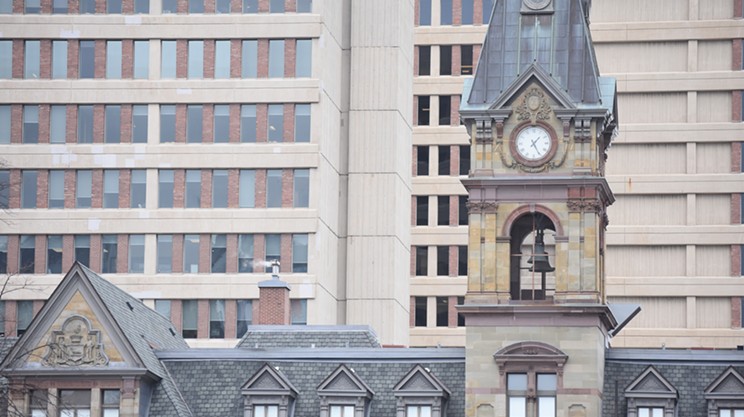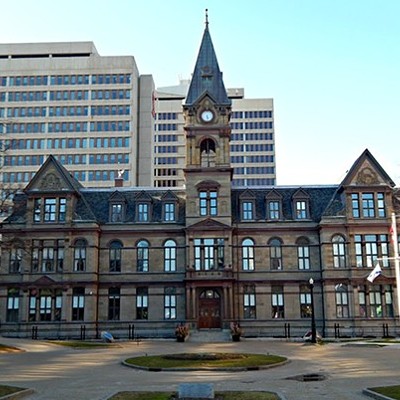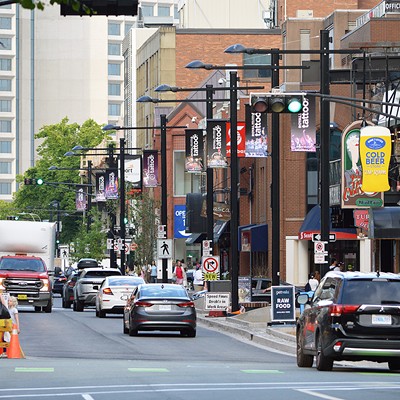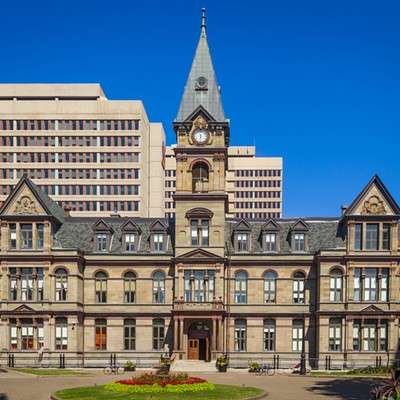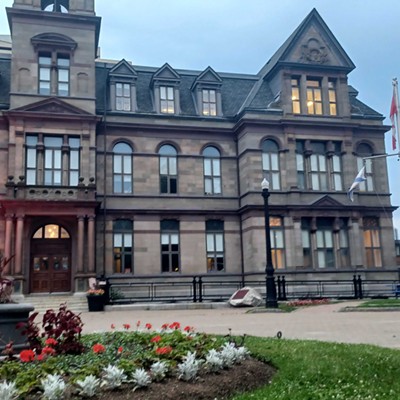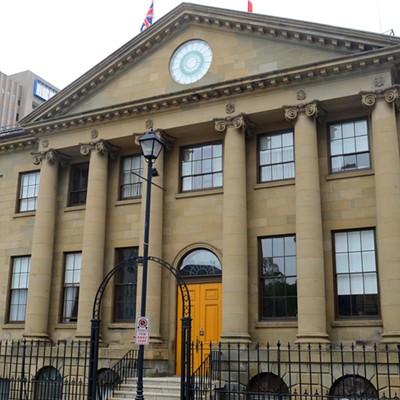For those who are unaware, there are three main ways companies or large organizations contribute to the climate emergency. Most people are familiar with the scope one emissions, which is the direct emissions produced by any organization. Scope two emissions come from the power we use, and the carbon generated from using that power which in Nova Scotia is a lot, because Nova Scotia power still uses a lot of coal.
The third type of pollution, or scope three emissions, is all the carbon that is generated indirectly by large organizations that is not easily measured. It’s things like if employees have to drive to work, their drive generates carbon, and would be scope three emissions. Although it’s extremely hard to measure scope three emissions it’s fun to think about how much emissions Halifax’s budget process may have pumped into our atmosphere. How many meetings were held that everyone drove to? How many times did people drive to the office to work on their departmental budgets? How many times did staff drive to city hall to wait around just in case councillors had questions? How many pepperoni pizzas were ordered for late night meetings?
It’s hard to quantify scope three emissions, but it’s fairly safe to say that if you work for a company or organization that claims to be sustainable, but your life is not sustainable (which it is not), then your company or organization is probably lying about their sustainability.
In lighter news during the community announcement section of the meeting councillor Becky Kent congratulated the justice minister, Eastern Shore MLA Barb Adams. In her congratulations Kent said she has Adams’ personal phone number. If you are one of the many constituents who are represented by both but who have been blocked by Adams it sounds like Kent can help you contact your MLA.
Things that passed
The Budget Committee met and after some opining from councillors, they sent the budget from budget committee to council (Paul Russell chairs budget committee, Mike Savage chairs council, so really this is a fancy way to say these two switched seats) and voted to pass Halifax’s budget. The city’s budget is clocking in at $1.4 billion including capital spending and it was ratified during the meeting.
A more fulsome recap of what exactly is in this budget can be found here:
Four businesses were destroyed by the Upper Tantallon Wildfires and the province has given the city permission to give those four businesses property tax relief.
The city is charging the marketing levy (hotel tax) to Airbnbs and some landlords who didn’t read the rules and were unaware they needed to do paperwork to say they didn’t have any taxes to submit. This led to fines for a class of people who are making the housing crisis worse for personal profit. Councillors thought this type of administrative burden was unfair so rushed to make dealing with the city an easier, more proactive enrollment type of administrative experience for land owners.
Did you know that if you are poor you can access HRM rec services at a discounted rate? All you have to do is a bunch of paperwork to prove that you are poor enough to need a discounted rate. For the past few years councillor Tony Mancini has been trying to make signing up for rec services an easier, more proactive type of administrative experience because asking people to prove poverty to access play is preventing people from participating in programming. I guess they should buy some land and start running Airbnbs if they want the city to respond to their needs with the same type of urgency.
The Housing Accelerator Fund bylaw amendments got a first reading. These changes have a bunch of good stuff in here, and this was a long technical debate as councillors requested changes specific to their districts. For example, councillor Sam Austin wanted to save the last of the old Rope Works housing until the city could determine if these were, in fact, the last buildings from the old Rope Works. There’s been a lot of armchair urban planning with this debate with some people saying this is going too far, and others saying this isn’t going far enough. All in all, this whole process feels a bit dumb. Historically we’ve had no problem putting high density in places with very little municipal services like Larry Uteck, or the condo farms of Bayers Lake. But now that we’re trying to add density to the part of the city that can actually handle that density there seems to be a lot of hesitation. For example, councillor Shawn Cleary put forward an amendment to add density zoning to Pepperell Street because it’s right next to a corridor zone, and corridor zones are identified as such because that’s where we want more density. Staff cautioned if we added density next to the corridor, then we might have to add density to all corridors. Imagine the horror of more dense corridors in a downtown core! Do you think the city could do better? Reach out to your councillor and formal submissions to the city can be made via [email protected] and suggestions to staff can be made to [email protected].
The new public engagement strategy is coming to council, but not yet! This 200-page report has some good stuff in it, like using existing municipal resources like libraries as hubs for community engagement and the underlying philosophy of why the city does public engagement seems to be solid. What seems to be lacking is how the outcomes of strategic plans will guide consultation to avoid, hypothetically, things like the Housing Accelerator Fund bylaw changes being watered down as a result of public engagement. More clarity will come in a later debate as this was deferred due to the HAF bylaw debate taking up most of the meeting.
The city’s doing its best Oprah impression and giving out a bunch of grants. The full lists can be found here and here and here.
Council gave tax relief to charities.
2552 Gottingen St. and 5561 Cogswell St. will get public hearings to see if they should be heritage properties. 1641 Fairfield Rd. became a heritage property.
COVE is having a demo day and they’ll be teaming up with the Canadian Armed Forces to burn some fossil fuel to put on a “show” demonstrating technology used in water rescues. This demonstration, which is heavy on scope one, two and three emissions, undermines the sincerity of the city’s declaration of a climate emergency, as burning all this carbon to put on a show was approved without debate.
To be clear, the issue is not that COVE and the CAF are asking to fly a helicopter, nor is it an issue when the Wanderers or the Royal International Tattoo ask for the same. The issue is that five years after the city has declared a climate emergency, these requests for the intensive burning of carbon are approved by council without any environmental considerations. In fact, at this meeting, burning some extra carbon for show in a climate emergency was approved without so much as a debate.
Because the city won’t take space away from drivers or fix our transportation planning in any way shape or form, councillor Cleary is asking if the city can give the Armview Restaurant some public park land to put their patio on, more on this below.
Councillor Austin is gearing up for a long administrative fight about the infilling of Dartmouth Cove. The first round of this administrative fight; how will people get access to an infilled cove? The city will write a letter to the province to find out.
Notable Debates
During the debate about putting a patio in a park councillor Patty Cuttell asked a fairly innocuous question. Why does this keep coming back to council, shouldn’t we have a better process to handle requests like this by now?
The answer is pretty banal, if someone wants to sell booze on municipal property then it needs to be approved by council. While it’s fine for this to be the process right now when these requests are few and far between it’s worth remembering that we are about to fundamentally rethink what our suburbs look like. As part of that process the city is likely going to switch to inclusionary zoning. According to the HRM’s tenders this report was supposed to be done by April 12, 2024, but is now “still underway and will be completed later this year.” Whenever that study is complete it will likely suggest some form of inclusionary zoning, which in turn means there will be some form of legislation that will allow coffee shops and restaurants to run in the suburbs of the HRM.
In the Coast’s Insider newsletter (you can subscribe here) it was snidely suggested the Armview should put its patio on the road. This is obviously a very dumb idea as putting a patio on Chebucto Road that close to the roundabout would result in congestion and drivers crashing into people enjoying brunch.
But as small local restaurants and coffee shops start popping up on wide and underutilized suburban roads, it is extremely likely that there will be an influx of requests for small businesses to sell booze on municipal roads and right of ways. And if all of those need to come to council for approval and renewal that will really start to gum up council meetings. If inclusionary zoning is going to happen in the HRM (which is extremely likely) then there is a need for this predictable planning issue to be addressed in the upcoming suburban plan. Be it changing the bylaws, the administrative orders or forming a subcommittee, if we want inclusionary zoning to be successful there needs to be a way to approve patios on municipal land in a way that does not require a full meeting of council.


